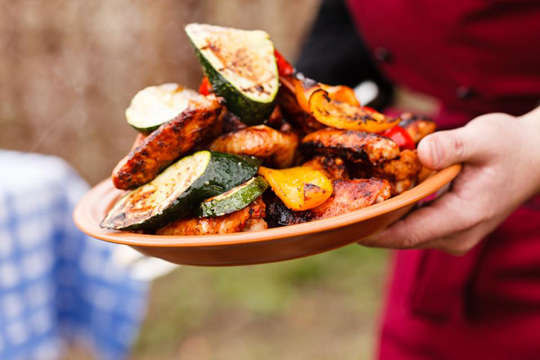New Delhi, Feb 20: We often tend to overeat without knowing it. Eating more than what our body needs is the root cause of several chronic health problems which can be avoided albeit with a little care.

Sonia Narang, nutrition expert of Oriflame India, here shares nine ways that can best help you to avoid overeating.
* Eat slowly
Chew every bite of your food properly. This is to slow us down when we eat. Research led by Mark Gold, MD at the University of Florida at Gainesville, US, has shown it takes 12 or more minutes for food satisfaction signals to reach the brain of a thin person, but 20 or more minutes for an obese person. Eating slowly ensures that these important messages have time to reach the brain.
* Be aware
Remain focused and aware of what you are eating. Usually overeating happens when you are concentrating on the things around you other than on the food, like reading newspaper or watching TV. The brain probably can’t register what is being put in the mouth and the pattern of eating, and then overeating continues.
* Make the first bites count
It is believed that maximum food enjoyment comes in the initial bites. After a few bites, taste buds start to lose their sensitivity to the chemicals in food that make it taste good. Satisfy your taste buds by really savoring those first few bites. This may help you stop eating when you’re physically comfortable.
* Keep up appearances of your food
Use a smaller plate and pay more attention to the presentation of a meal. This can increase your awareness of the food in front of you and help you stop eating when you are comfortable.
* Choose satisfying foods
Steer away from foods that give you a lot of calories for very little volume, such as milk shakes, cheese, and chocolate. The higher the fiber, protein, and/or water content of a food or meal, the more likely it is to be satisfying in your stomach without going overboard on calories.
* Maintain a food journal
This will help you identify your trigger points, your emotional eating and overeating. Writing it with the timings and portions will help you assess and win over those issues.
* Drink 10-12 glasses of water every day
Water keeps your system hydrated. It’s a no calorie liquid and will make you feel full physically. The chances of overeating can reduce significantly if you drink a glass of water every one hour.
* Get good sleep
Sleep deprivation is a stress by itself for the brain. Brain releases Cortisol, a stress hormone, when it does not get proper sleep. This leads to overeating. A sound sleep does a good repair of all the cells and tissues. Gives you better concentration.
* Get some exercise
A workout done for 30 to 45 minutes’ releases feel-good factor. You no longer depend on food only to feel good, hence the chances are that food is considered solely for nourishment and not as reward or solace.






Comments
Add new comment